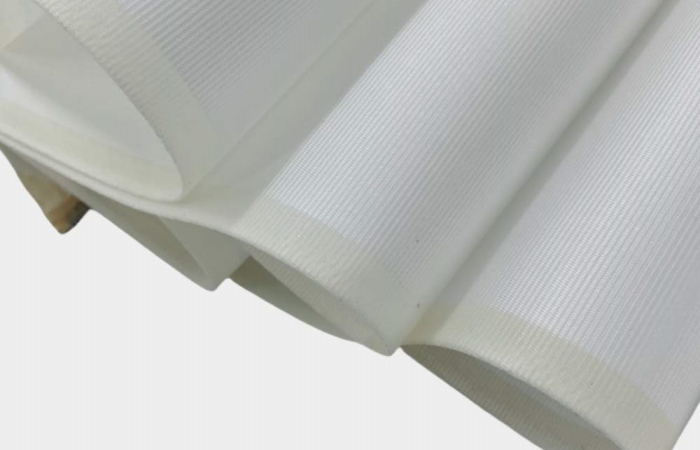The alkali resistance of polyester filter fabrics primarily depends on its chemical structure and the functional groups on the polymer chains. The molecular chains of polyester (polyethylene terephthalate) are mainly connected by ester groups (COO-), which give polyester fibers good acid resistance. However, ester groups are prone to hydrolysis under alkaline conditions, leading to the breakdown of the fiber structure, thereby affecting its alkali resistance.
Polyester filter fabrics are relatively stable in dilute alkali solutions at room temperature. However, in high-temperature, high-concentration alkaline environments, the hydrolysis rate of the ester groups increases, leading to a reduction in fiber strength and fiber breakage. Therefore, the alkali resistance of polyester filter fabrics is influenced by factors such as the concentration of alkali solutions, temperature, and treatment time.

Factors Influencing Alkali Resistance
Alkali Solution Concentration: The concentration of alkali solution is one of the main factors affecting the alkali resistance of polyester filter fabrics. The higher the concentration, the stronger the erosive effect of the alkali on the polyester fibers, and the worse the fiber’s alkali resistance. In industrial production, it is necessary to select the appropriate alkali concentration according to specific process conditions to balance filtration efficiency and fabric lifespan.
Temperature: Temperature also has a significant impact on the alkali resistance of polyester filter fabrics. As the temperature increases, the rate at which the alkali erodes the fibers accelerates, leading to a decrease in fiber strength. Therefore, when using polyester filter fabrics in high-temperature environments, special attention should be paid to their alkali resistance, avoiding prolonged exposure to high-temperature alkaline solutions.
Treatment Time: The longer the polyester filter fabric is exposed to alkali solutions, the greater the damage. Extended soaking and rinsing can accelerate the hydrolysis reaction of the fibers, leading to fiber breakage and reduced strength. Therefore, in practical applications, it is necessary to reasonably control the treatment time of polyester filter fabrics in alkali solutions to minimize fiber damage.
Bolian filtration materials strictly follow the process procedures during production. Each stage undergoes precise quality inspection, and the production is fully compliant with ISO9001 standards, ensuring that every batch of products and every piece of filter cloth meets stringent quality requirements.